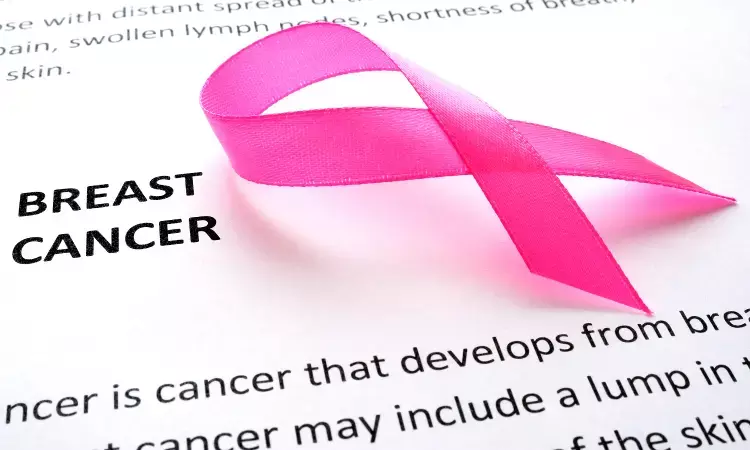- Home
- Medical news & Guidelines
- Anesthesiology
- Cardiology and CTVS
- Critical Care
- Dentistry
- Dermatology
- Diabetes and Endocrinology
- ENT
- Gastroenterology
- Medicine
- Nephrology
- Neurology
- Obstretics-Gynaecology
- Oncology
- Ophthalmology
- Orthopaedics
- Pediatrics-Neonatology
- Psychiatry
- Pulmonology
- Radiology
- Surgery
- Urology
- Laboratory Medicine
- Diet
- Nursing
- Paramedical
- Physiotherapy
- Health news
- Fact Check
- Bone Health Fact Check
- Brain Health Fact Check
- Cancer Related Fact Check
- Child Care Fact Check
- Dental and oral health fact check
- Diabetes and metabolic health fact check
- Diet and Nutrition Fact Check
- Eye and ENT Care Fact Check
- Fitness fact check
- Gut health fact check
- Heart health fact check
- Kidney health fact check
- Medical education fact check
- Men's health fact check
- Respiratory fact check
- Skin and hair care fact check
- Vaccine and Immunization fact check
- Women's health fact check
- AYUSH
- State News
- Andaman and Nicobar Islands
- Andhra Pradesh
- Arunachal Pradesh
- Assam
- Bihar
- Chandigarh
- Chattisgarh
- Dadra and Nagar Haveli
- Daman and Diu
- Delhi
- Goa
- Gujarat
- Haryana
- Himachal Pradesh
- Jammu & Kashmir
- Jharkhand
- Karnataka
- Kerala
- Ladakh
- Lakshadweep
- Madhya Pradesh
- Maharashtra
- Manipur
- Meghalaya
- Mizoram
- Nagaland
- Odisha
- Puducherry
- Punjab
- Rajasthan
- Sikkim
- Tamil Nadu
- Telangana
- Tripura
- Uttar Pradesh
- Uttrakhand
- West Bengal
- Medical Education
- Industry
Oral, Hormone-Free drug may reduce Hot Flashes in Breast Cancer Patients: THE LANCET.

MELBOURNE: According to findings from a phase II study reported in The Lancet, a novel, non-hormonal oral medication proved successful in lowering hot flashes and night sweats in women receiving oral adjuvant endocrine therapy after breast cancer.
Endocrine therapy is the go-to treatment for hormone-sensitive breast cancers, which account for more than 75% of cases. For 5–10 years following anticancer therapy, estrogen therapy is advised for women who had hormone-sensitive breast cancer in order to avoid disease recurrence. However, almost one third of women who are receiving endocrine therapy prematurely cease it because of vasomotor symptoms, which affect about 70% of women receiving it.
"In addition to being common in breast cancer patients, hot flashes and night sweats can also be made worse by oral adjuvant endocrine therapy, such as tamoxifen and aromatase inhibitors, which is advised for women with hormone receptor-positive disease in order to increase disease-free and overall survival," noted Vrselja and co-authors.
131 women receiving endocrine therapy (tamoxifen or an aromatase inhibitor) after breast cancer participated in the Phase II study, which was a multicenter, randomized, double-blind, placebo-control trial.
Women between the ages of 18 and 70 who were undergoing treatment for breast cancer with a stable dose of tamoxifen or an aromatase inhibitor and reporting at least 50 moderate to severe vasomotor symptoms each week were eligible to participate. Using an interactive web response system, participants were randomized in a 1:1 ratio to receive oral Q-122 100 mg twice day for 28 days or the identical placebo. BMI (30 kg/m2 or >30 kg/m2) and usage of any selective serotonin reuptake inhibitor, selective norepinephrine reuptake inhibitor, gabapentin, or pregabalin were used to stratify randomization. 243 patients were screened between October 24, 2018, and September 9, 2020. Of those, 131 were randomly assigned to receive therapy (Q-122, 65 patients, and placebo, 66 patients).
Key findings of the Q-122 Trial:
- Over the course of 28 days of treatment, there was a higher mean percentage change in msVMS-SS compared to placebo (least squares mean: Q-122, -39% [95% CI -46 to -31] vs. placebo -26% [-33 to -18]; p=0018).
- There were zero patients in the Q-122 group and two (3%) patients in the placebo group who experienced significant adverse events.
- treatment-emergent adverse events were mainly mild to moderate and comparable between the two groups (TEAV in 11 [17%] of 65 patients in the Q-122 group vs nine [14%] of 66 patients in the placebo group).
If Q-122 can ease these symptoms, it has a considerable chance of lowering the number of patients who stop receiving endocrine therapy, allowing for continuous protection against breast cancer recurrence.
"Beyond symptom reduction alone, this is a very significant prospective advantage of Q-122," said Professor Davis, the principal investigator and senior author.
The findings of the Phase II trial conducted by QUE Oncology encourage the conduct of larger and longer studies of Q-122, with potential use to postmenopausal women who need an alternative to oestrogen treatment for vasomotor symptoms.
REFERENCE
Vrselja A, et al "Q-122 as a novel, non-hormonal, oral treatment for vasomotor symptoms in women taking tamoxifen or an aromatase inhibitor after breast cancer: a phase 2, randomised, double-blind, placebo-controlled trial" Lancet 2022; DOI:10.1016/S0140-6736(22)01977-8.
Dr Kamal Kant Kohli-MBBS, DTCD- a chest specialist with more than 30 years of practice and a flair for writing clinical articles, Dr Kamal Kant Kohli joined Medical Dialogues as a Chief Editor of Medical News. Besides writing articles, as an editor, he proofreads and verifies all the medical content published on Medical Dialogues including those coming from journals, studies,medical conferences,guidelines etc. Email: drkohli@medicaldialogues.in. Contact no. 011-43720751


